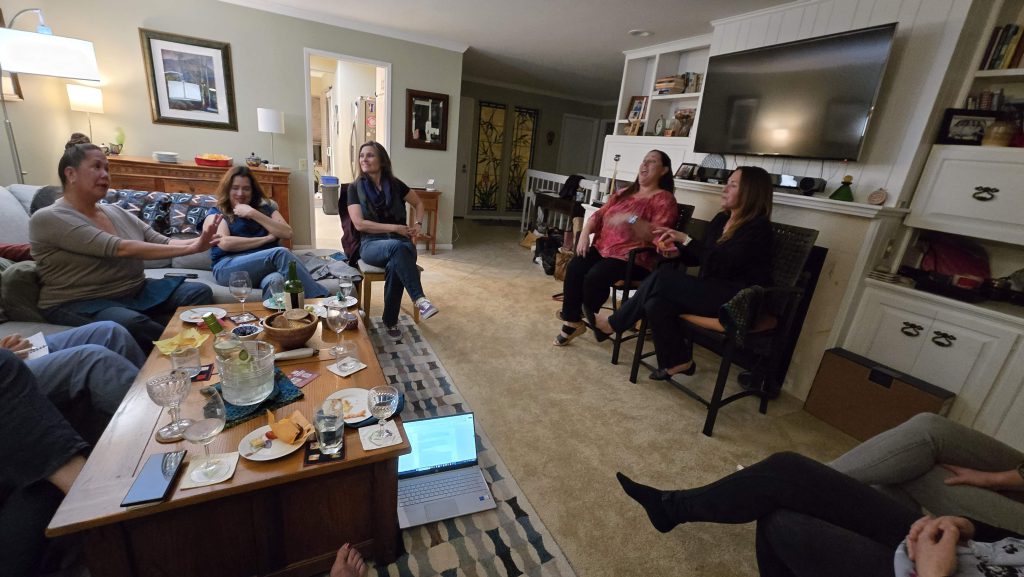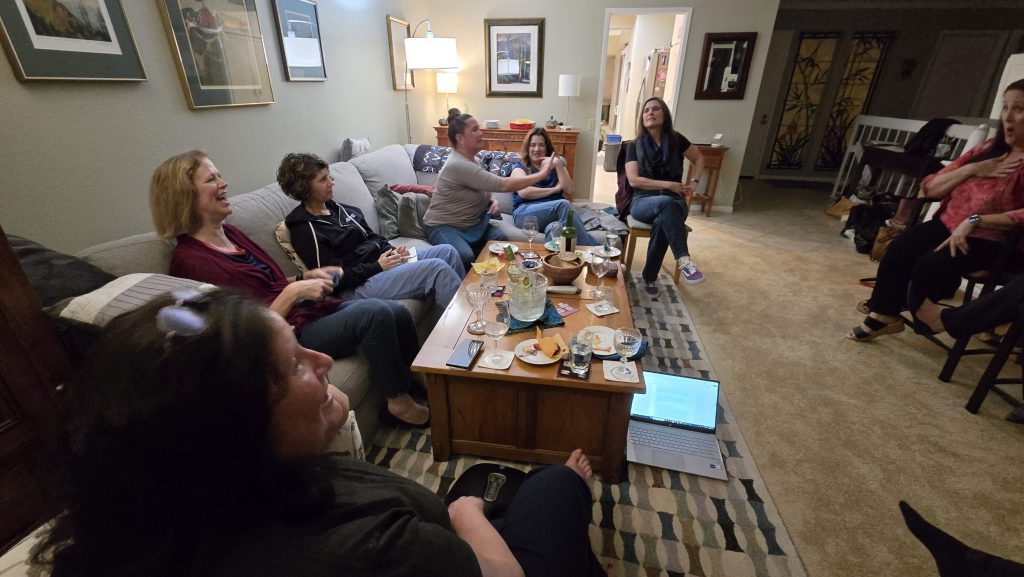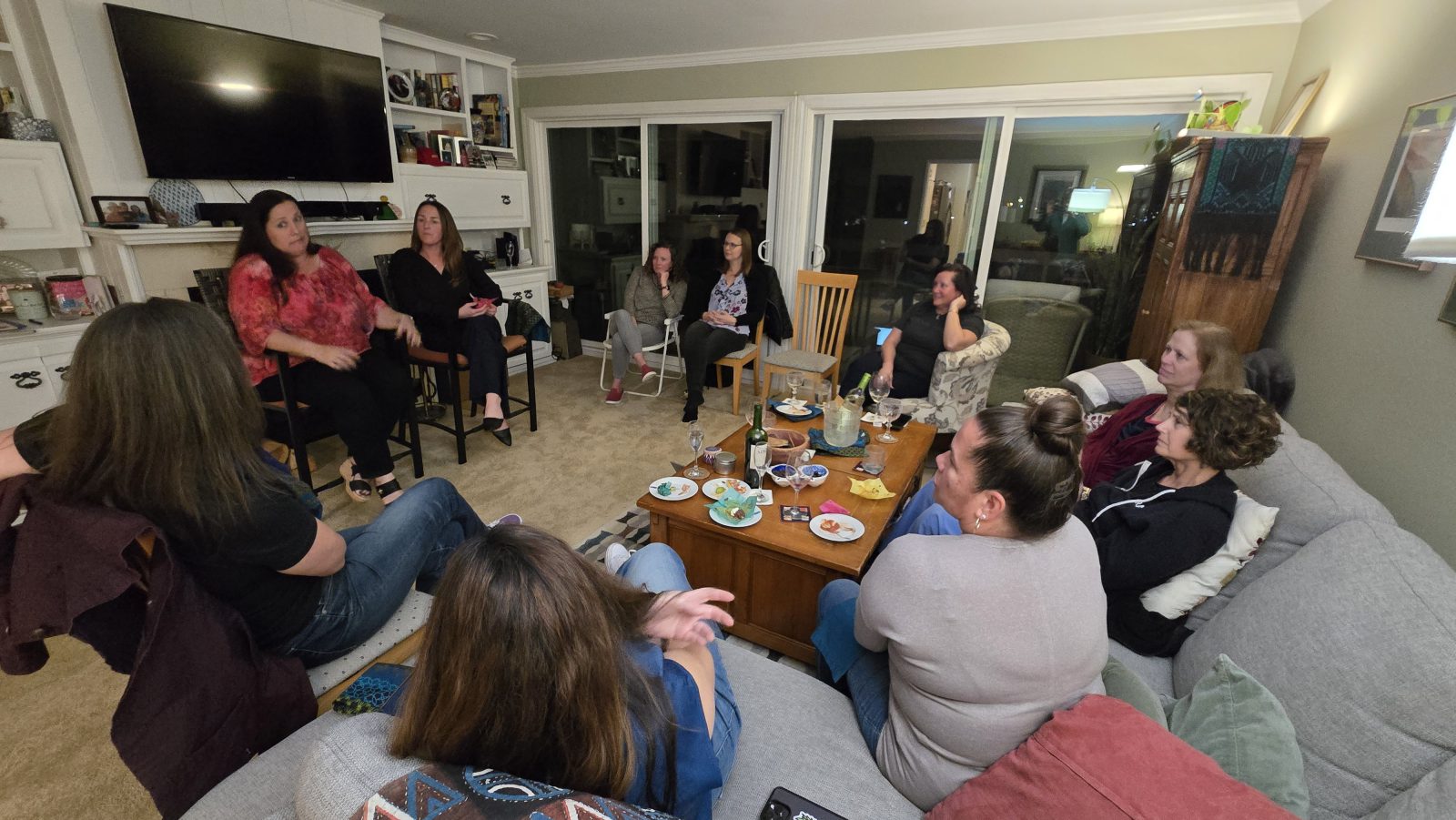03-20-2025
Attendees: Angela, Emily, Heidi, Julie, Krista, Lisa, Megan, Sandra, Suzanne
Woman of Inspiration: Lucy Stone, first Massachusetts woman to earn a college degree and refused to take her husband’s name when she got married. She has a navy shipped named for her.
Speakers: Rachel Allums, Estate Planner and Markala Comfort, Fiduciary
Megan knows Rachel from the San Diego Bar Association Leadership Academy.
Angela works with Markala for the past year. Angela and markala are helping another professional fiduciary with her business.
Rachel
Who has an estate plan? Half of the audience.
How many have been an executor or trustee? A couple of us.
Estate plans lays out what happens after you die. But some need help while alive like the sandwich generation: taking care of aging parents and children. In California, after you die, you want to avoid probate. After you die, the courts will go through probate. It takes about 18 months to 2 years to go through probate in San Diego. A will does not avoid probate. The only thing that avoids probate is a trust. Will has an executor. The fiduciary handles the probate. Judge supervises the distribution of your assets – taxes paid, debts paid, assets distributed. The judges calendars are backed up which adds to the time to complete probate. You are supposed to get a hearing in 30-45 days. You can’t do anything with the estate or the money during probate.
Some people name a professional fiduciary, someone who is not biased or emotionally connected. A private fiduciary could be the backup person.
After probate of 2 years, the judge names the heirs, etc. (9 degrees of separation) Heir Location companies will search for heirs when they see a probate that doesn’t show an heir. They search genealogy records to find an heir. Probate is public record.
It’s expensive, the fees are statutory (set in law) percentage of gross value. i.e. $1 million, fee is $23,000 for lawyer, another $23,000 for administrator/executor. The beneficiary will get the benefits as long as beneficiary is still alive.
In at trust: beneficiaries protected, its private, its faster, its cheaper. Trust is an empty box – think of it as a gift you give to your loved ones. Move assets into your trust. Anything in the trust box is invisible to the probate court – don’t have the 2 year long process. Can pay debts right away because no one is waiting for the court to give assets. Lapse time is about 10 days after someone dies for a death certificate.
Create the trust, put in assets like bank account, house, real estate, investment accounts (unrestricted) not retirement accounts like IRA, Roth IRA. You can create special restrictions in the trust for your children, your special needs child, your grandchild, etc. Retirement plans, name spouse first for beneficiary, then children, trust could be backup . Talk to a professional to determine what your situation calls for. Public beneficiaries can be affected if special needs person inherits a large amount. Money from retirement funds has to be used in 10 years.
Secure Act: No longer can children stretch out retirement benefits until their retirement, changed to 10 years. Look at retirement accounts specifically for your situation.
Blended families and single parents need to look at your situation. Can keep pre-owned assets separate from community property. If single person has a trust and then get married, you can leave your assets in the trust (you can also outline in a prenup) and keep the properties separate. You can also create a community trust (shared plan).
Angela has a trust for her house which outlines that the kids own the house, not new husband or wife and not the kids’ spouses.
A/B Trust: marital trust splits into two trusts. Irrevocable to the survivor spouse.
First Trust Gift: When you die, you give a gift to others not your spouse.
Who do you love, who depends on you, who do you worry about, what legacy do you want to leave?
Lots of way to structure a trust. Cost is about 10% of the cost of probate. You have the ability to build in any structure you want. Fund the trust. When you are incapacitated or die, the trust is executed as you defined.
Still have a will called a pour over will.
Assets of more than $184,000, then probate kicks in.
Markala
Usually an executor or fiduciary is named in the will. If not, the courts have to name someone. Fiduciary is a neutral party.
Many of her clients don’t have children or don’t have local family. They need someone to step in to take care of their finances and their well-being. Markala has an attorney that she works with to make sure the trust is setup legally. She has her legal counsel make sure they are legally abiding by the trust and executing legally.
Don’t list co-trustees. If too many people in charge, no one is in charge.
Can a daughter hire a fiduciary to help with her father? It depends on the trust. A good trust will define the succession. “Trust protector” The daughter can go to the attorney that drafted the trust to ask if she can assign a fiduciary.
What’s the day in the life of a fiduciary? Markala has a small variety of clients. She has a special needs trust – day to day bill pay, caregiving information, very high touch case, working with the family, too. Trust Administrator looks a little different, such as client is deceased and Markala is making distributions and closing the trust as directed in the trust. A good trust will require at least an annual accounting. Communication with beneficiaries, legal experts, care providers, family, CPAs during tax time (a lot of tax implications such as property taxes), businesses. Each situation is unique, adjust to their life. The beauty of a fiduciary is impartial, loyal to the trust, loyal to the beneficiaries. Markala has relationships wilh all of the other parties involved in the trust such as family, legal experts, caregivers, etc, to collaborate.
Rachel
During life, durable power of attorney and healthcare directive come into play. Named and clearly defined in the trust paperwork. Some fiduciaries will only serve in the financial realm, not the personal realm. Keep that in mind when selecting a fiduciary. Anyone put in that role, they should be paid.
It’s important to have a secondary successor named. Have a plan for succession. Review your trust every 3-5 years.
What do you think their top 3 fails?
- Don’t fund the trust. They don’t put their house in the trust.
- Don’t add beneficiary/kid to your house title. Kid is at your capital gains value. Don’t put your kid on the bank account. Use the Power of Attorney. Use an estate plan.
- Passwords! Modern name fail. Use a password manager, pay for a password manager. Don’t put your passwords in a locked safe or a safe deposit box.
Make sure you ask the person you have named for fiduciary, guardian, trustee.
Have extra oversight. Introduce your children to the estate planner or fiduciary.
Trusts defines incapacity rules.
Minimum plan includes trust , pour over will, durable power of attorney, and healthcare directive.
Should I put my business in the trust? The business stays as its own entity. You can set it up that it will fold into the trust if you die.
Fee: $1,900 for single, $2,400 for married couple for a basic plan. Amendments have additional discreet work fee.
Markala
Top 3 fails from fiduciary point of view:
- Have more than one successor in succession of who will be trustee. Fail is that you only name one person. Succession for person of power and succession of beneficiaries.
- Never be a co-trustee in any situation. Logistics are difficult. Have at least one person who is the captain of the ship. Don’t make your kids co-trustees, it causes friction in their relationship. You could make one financial POA for health and the other for finance.
- Read your family’s trusts. If you have any connection to anyone’s trust, get the trust so you know what you are coming into. If you can get your hands on it.
Start the conversation with fear, fear is a great motivator. Start with healthcare directive discussion so you know what they want in their healthcare. Let your parents know that your goal is to keep them independent as long as you can. Have they thought about their care?
Fee: Hourly $150 per hour. Posted on her website by law.



